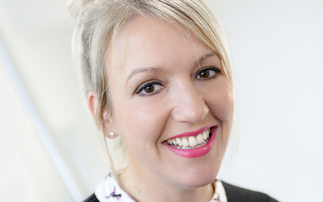
We have reached the end of 2023 and it is fair to say it has been a very challenging year for advisers.
Volatile markets, political uncertainty, rising interest rates, inflation and the Consumer Duty deadline have made what is always a complex job even harder.
At the last Professional Adviser Digital Working Lunch of 2023, Doug Abbott, Schroders's head of UK wealth, Gillian Hepburn, commercial director at Benchmark, and Philip Martin of Unique Financial Planning discussed the results of the latest Schroders UK Financial Adviser Pulse Survey.
The comprehensive survey carried out in November took in responses from 254 advisers on a variety of key topics, including investments, business challenges, Consumer Duty, fees and artificial intelligence (AI).
On the topic of investment, Abbott explained that advisers became more bearish on the markets as the year went on, with 51% saying they are ‘slightly bearish' and 10% very bearish. Only 17% described themselves as bullish.
Abbott said the bearishness was driven to large degree by the outbreak of the conflict in the Middle East in October, coupled with central bank rhetoric on keeping rates ‘higher for longer' to tackle inflation.
He added that capital loss remained the biggest concern for advisers, with 59% citing it as their number one concern. Given this, Abbott noted that 95% of advisers said they have had conversations with clients about the merits of investing versus just holding cash, an uptick of 5% from the last survey in May.
Turning to the topic of sustainability, Hepburn noted that the survey found advisers are aware of the link between sustainability and investing, with 76% saying they factor it in to decisions. However there is some disconnect with clients, as only 23% of advisers said more than a quarter of their clients ask for ESG factors to be incorporated in their investment strategy.
The panel also addressed the main business challenges advisers are facing. The survey found that regulation has become a much bigger issue with almost half citing it as their main concern versus only a third in November 2022.
This is reflective of the challenge created by Consumer Duty, and 50% of advisers said ongoing assessments of fair value is their number one priority related to this. Confirming consumer understanding and reviewing client documentation were also pointed to as important.
Fees are always a crucial consideration, and Hepburn noted that 44% of advisers surveyed feel there is downward pressure being placed on advice charges. She did however note that despite this, there has been an increase in the number of advisers charging between 0.5% and 0.75%, with 53% now doing so compared to 37% in 2022.
On the topic of AI, Hepburn noted that the survey found 70% of advisers see it as an opportunity and only 30% say it is a threat to their business. This was up significantly on the 57% to 43% split found in March.













